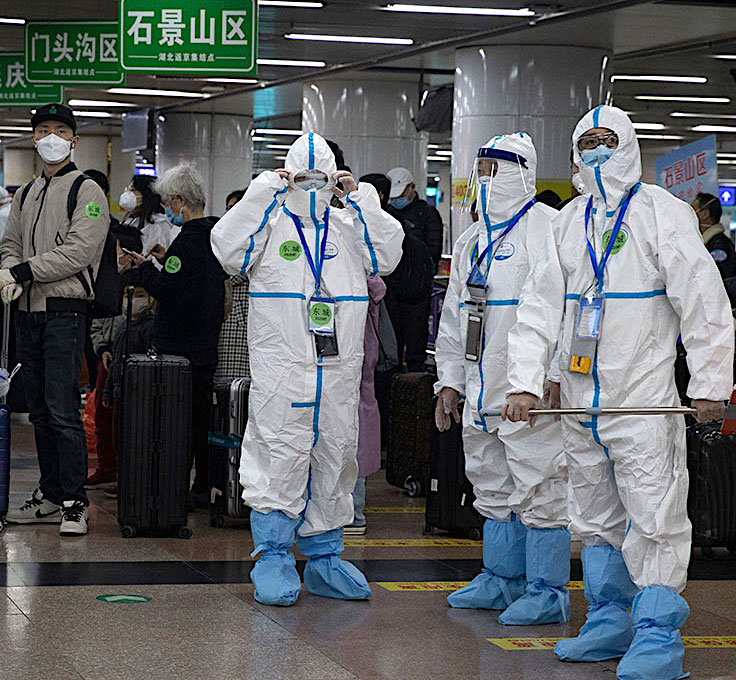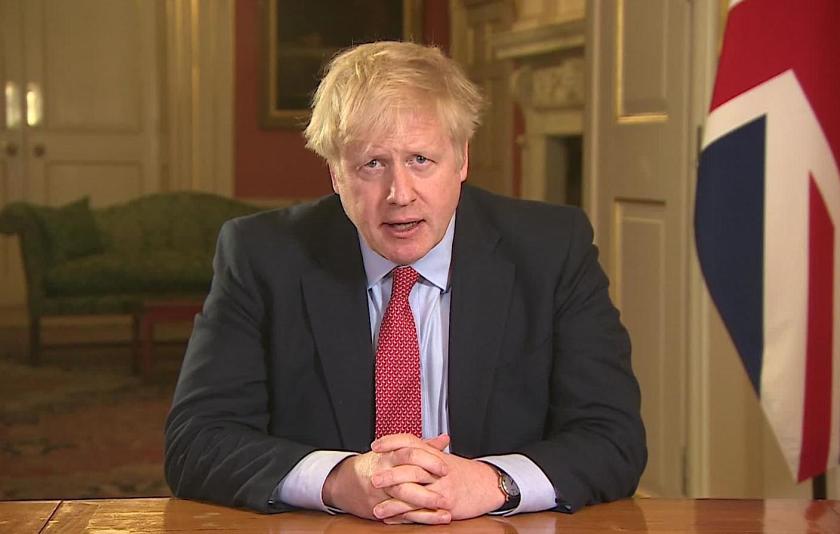The government’s catalogue of blunders was rehearsed once again, from the catastrophic decision to send hospital patients to care homes without being tested for the virus to the serial failures to establish comprehensive testing and tracing. As Sky’s reliably morbid political editor Beth Rigby outlined, the Johnson administration, still basking in its election victory and fixated on Brexit, was too slow to recognise the Covid danger and not decisive enough when it did.
Not that it was unique in this. At the World Economic Forum in Davos in January, the sole topic of discussion was climate change. Covid was not on the agenda, despite stories about its spread in the Far East. “We have it under control,” a complacent Donald Trump told reporters (pictured below, health workers in Wuhan).
 Despite the horrific details of the virus’s subsequent spread, some of the most sinister episodes were Tom Cheshire’s early reports from Wuhan, where rumours of an unknown disease were circulating last December (though anyone spreading such heresies was punished by the Chinese authorities). Shots of health workers in hazmat suits furtively bundling comatose patients into ambulances was the stuff of sci-fi nightmares. China’s claim of suffering only 4,600 deaths in a population of 1.4 billion people is not widely believed.
Despite the horrific details of the virus’s subsequent spread, some of the most sinister episodes were Tom Cheshire’s early reports from Wuhan, where rumours of an unknown disease were circulating last December (though anyone spreading such heresies was punished by the Chinese authorities). Shots of health workers in hazmat suits furtively bundling comatose patients into ambulances was the stuff of sci-fi nightmares. China’s claim of suffering only 4,600 deaths in a population of 1.4 billion people is not widely believed.
While the film didn’t hesitate to pile on the agony, with harrowing stories of health workers deprived of safety equipment and accounts of the disproportionate number of casualties among BAME groups, there was little investigative research. Public Health England, the body supposedly responsible for contagious disease control, was never mentioned, but surely will be in subsequent inquiries into how, why and what went wrong. The epidemiological modelling by Imperial College which shaped the government’s responses has numerous critics, but it didn’t feature here. As for the future, economics editor Ed Conway delivered this little time-bomb: “British capitalism as we know it has changed forever.” Singing "We’ll Meet Again" may not be enough.















Add comment